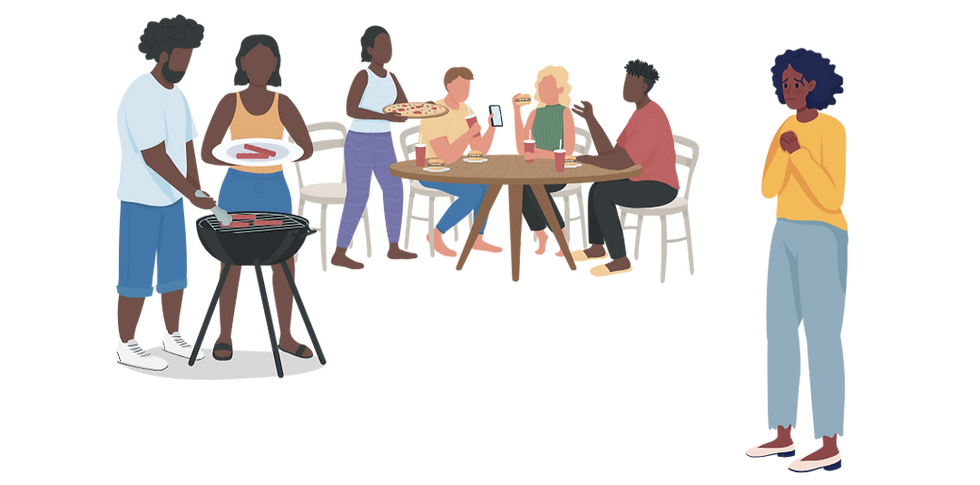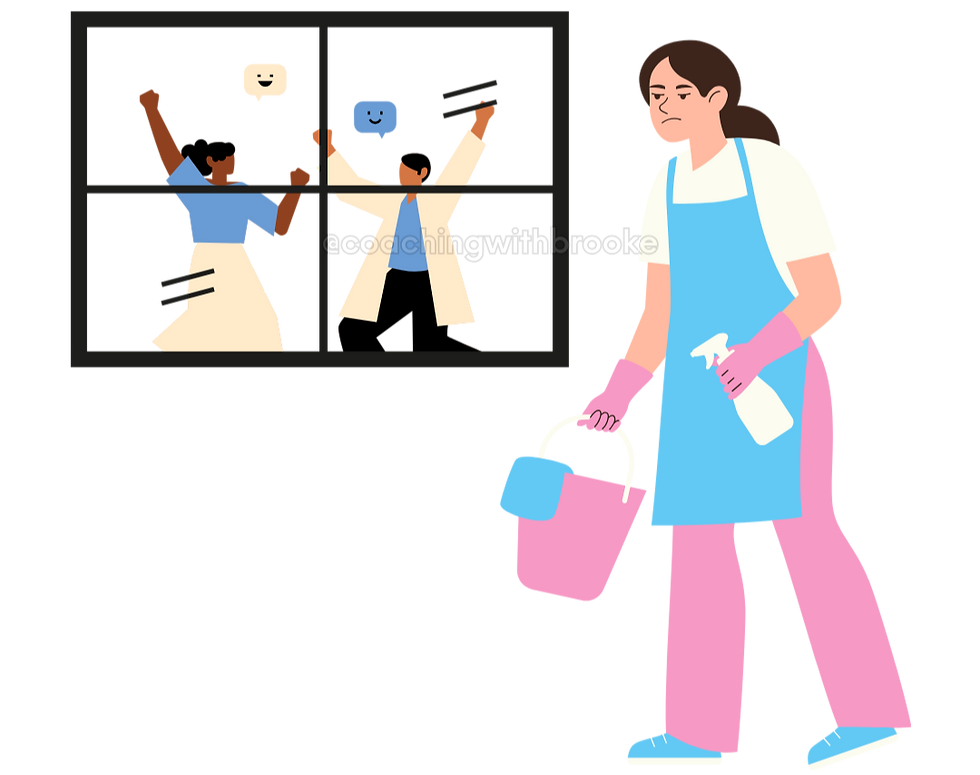ADHD People Pleasing Problems
- May 16, 2025
- 3 min read
Do you ever find yourself giving an enthusiastic "YES!" to helping then regretting it later when you're drowning in overwhelm?
Or even spewing embarrassing lines you never intended to share in order to boost someone else's confidence?
While people pleasing happens across all neurotypes, for ADHDers, it can feel especially intense: like a survival mechanism that developed early and never really shut off.
ADHDers too often find ourselves overexerting ourselves for the sake of making sure people like us and see us as useful or kind. It's deep rooted in how we've experienced life with ADHD!

Rejection is PAINFUL
With ADHD, we most often people please to avoid the excruciatingly intensified feelings of rejection.
Rejection Sensitive Dysphoria (RSD) is a deep emotional sensitivity to perceived criticism, rejection, or disapproval.
For someone with RSD:
A simple “Can we talk later?” can feel like we’ve done something terribly wrong
Disappointing someone, even slightly, feels unbearable
We might overextend ourselves just to avoid conflict or keep everyone happy
Avoiding rejection becomes more important than protecting our own time, energy, or well-being.

Societal Experiences
We often feel socially obligated to be seen as “nice” in an effort to avoid scrutiny and hide our ADHD symptoms. (Even though our kindness standard is already sky-high.)
Most ADHDers grow up constantly hearing feedback about our productivity and behaviors we have little control over.
“Why can’t you just focus?”
“You’re too much.”
“You’re not trying hard enough.”
Over time, this leads to an internal narrative that says:
“If I’m not helpful, agreeable, or impressive, I’m not worthy.”
So we work harder to prove our value, not just through achievement, but by being liked. We end up...
Over-apologizing
Avoiding giving honest feedback
Staying in draining relationships or roles longer than we should

When People Pleasing Backfires
All this overextension of our kindness can easily backfire and land us in worse situations of exploitation and manipulation.
People pleasing to our own detriment can look like...
Jumping to be the first to volunteer before anyone else can then regretting it later when we're overwhelmed and left alone
Bashing/downplaying ourselves to make others feel better "Well I can do it and I'm a total idiot so you'll be fine!"
Staying in situations that are uncomfortable or avoiding sharing our opinion for the sake of maintaining the peace
Ignoring blatant disrespect (or not even recognizing it)
Giving up our food, even when we really want/need it
Quick to say “Yes!” to taking more things on without realizing I’m on the verge of burnout
Acting like I’m oblivious on a subject so I can ask questions and make them feel smart
Worrying how I'll get done everything I’ve committed to and crippling fear of letting others down
If you want to change your habits around people pleasing, consider the following...
IS IT FAIR? Would it be fair for you to expect this from someone else? If they are upset by your refusal, they likely don't have your best interest in mind.
AM I PEOPLE PLEASING?
What am I giving up in order to take this on?
Who is this truly serving in the end?
Do I actually have time and resources to allocate to this?
Am I leaning towards "yes" because of pressure or fear?
NAME WHAT YOU'RE AVOIDING Are you saying yes because:
You’re afraid of being seen as difficult?
You want to avoid guilt or conflict?
You fear being left out or disliked?
Knowing your “why” helps you recognize emotional patterns and challenge them.
START WITH SMALL BOUNDARIES You don’t have to start with a huge confrontation. Try:
“I can help, but only for 30 minutes.”
“I’m not available this weekend, but I hope it goes well!”
“I’d rather not talk about that. Let’s switch topics.”
BUILDING SELF-TRUST Every time you honor your needs, you're telling your brain: “My comfort and capacity matter, too.” Try journaling about how you feel after saying “no,” sticking to your limits, or simply prioritizing rest. The more you notice the benefits, the easier it gets.
Get more like this to your inbox every Monday with our ADHD Newsletter!📨
Show yourself that same kindness you give others... For me? ;)
Coach Brooke




